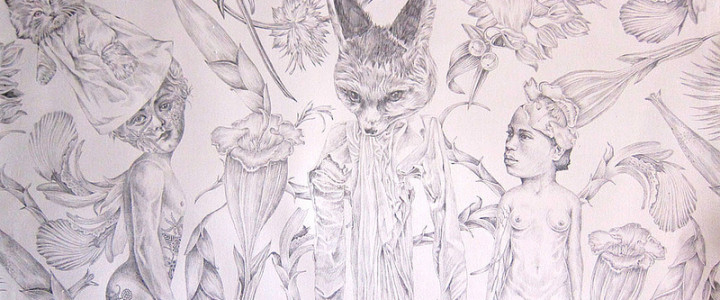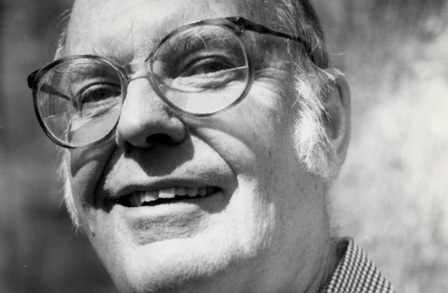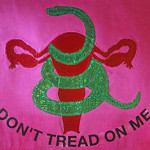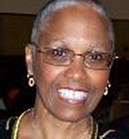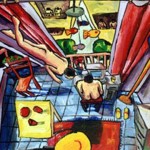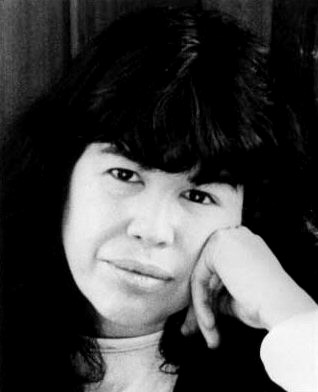The first time we try to deliver the Gold Crown the lights are on in the house but no one lets us in. I bang on the front door and Wayne hits the back and I can hear our double drum shaking the windows. Right then I have this feeling that someone is inside, laughing at us.
This guy better have a good excuse, Wayne says, lumbering around the newly planted rosebushes. This is bullshit.
You’re telling me, I say but Wayne’s the one who takes this job too seriously. He pounds some more on the door, his face jiggling. A couple of times he raps on the windows, tries squinting through the curtains. I take a more philosophical approach; I walk over to the ditch that has been cut next to the road, a drainage pipe half filled with water, and sit down. I smoke and watch a mama duck and her three ducklings scavenge the grassy bank and then float downstream like they’re on the same string. Beautiful, I say but Wayne doesn’t hear. He’s banging on the door with the staple gun.
__________
At nine Wayne picks me up at the showroom and by then I have our route planned out. The order forms tell me everything I need to know about the customers we’ll be dealing with that day. If someone is just getting a fifty-two-inch card table delivered then you know they aren’t going to give you too much of a hassle but they also aren’t going to tip. Those are your Spotswood, Sayreville and Perth Amboy deliveries. The pool tables go north to the rich suburbs—Livingston, Ridgewood, Bedminster.
You should see our customers. Doctors, diplomats, surgeons, presidents of universities, ladies in slacks and silk tops who sport thin watches you could trade in for a car, who wear comfortable leather shoes. Most of them prepare for us by laying down a path of yesterday’s Washington Post from the front door to the game room. I make them pick it all up. I say: Carajo, what if we slip? Do you know what two hundred pounds of slate could do to a floor? The threat of property damage puts the chop-chop in their step. The best customers leave us alone until the bill has to be signed. Every now and then we’ll be given water in paper cups. Few have offered us more, though a dentist from Ghana once gave us a six-pack of Heineken while we worked.
Sometimes the customer has to jet to the store for cat food or a newspaper while we’re in the middle of a job. I’m sure you’ll be all right, they say. They never sound too sure. Of course, I say. Just show us where the silver’s at. The customers ha-ha and we ha-ha and then they agonize over leaving, linger by the front door, trying to memorize everything they own, as if they don’t know where to find us, who we work for.
Once they’re gone, I don’t have to worry about anyone bothering me. I put down the ratchet, crack my knuckles and explore, usually while Wayne is smoothing out the felt and doesn’t need help. I take cookies from the kitchen, razors from the bathroom cabinets. Some of these houses have twenty, thirty rooms. On the ride back I figure out how much loot it would take to fill up all that space. I’ve been caught roaming around plenty of times but you’d be surprised how quickly someone believes you’re looking for the bathroom if you don’t jump when you’re discovered, if you just say, Hi.
After the paperwork’s been signed, I have a decision to make. If the customer has been good and tipped well, we call it even and leave. If the customer has been an ass—maybe they yelled, maybe they let their kids throw golf balls at us—I ask for the bathroom. Wayne will pretend that he hasn’t seen this before; he’ll count the drill bits while the customer (or their maid) guides the vacuum over the floor. Excuse me, I say. I let them show me the way to the bathroom (usually I already know) and once the door is shut I cram bubble bath drops into my pockets and throw fist-sized wads of toilet paper into the toilet. I take a dump if I can and leave that for them.
__________
Most of the time Wayne and I work well together. He’s the driver and the money man and I do the lifting and handle the assholes. Tonight we’re on our way to Lawrenceville and he wants to talk to me about Charlene, one of the showroom girls, the one with the blowjob lips. I haven’t wanted to talk about women in months, not since the girlfriend.
I really want to pile her, he tells me. Maybe on one of the Madisons.
Man, I say, cutting my eyes towards him. Don’t you have a wife or something?
He gets quiet. I’d still like to pile her, he says defensively.
And what will that do?
Why does it have to do anything?
Twice this year Wayne’s cheated on his wife and I’ve heard it all, the before and the after. The last time his wife nearly tossed his ass out to the dogs. Neither of the women seemed worth it to me. One of them was even younger than Charlene. Wayne can be a moody guy and this is one of those nights; he slouches in the driver’s seat and swerves through traffic, riding other people’s bumpers like I’ve told him not to do. I don’t need a collision or a four-hour silent treatment so I try to forget that I think his wife is good people and ask him if Charlene’s given him any signals. He slows the truck down. Signals like you wouldn’t believe, he says.
___________
On the days we have no deliveries the boss has us working at the showroom, selling cards and poker chips and mankala boards. Wayne spends his time skeezing the salesgirls and dusting shelves. He’s a big goofy guy—I don’t understand why the girls dig his shit. One of those mysteries of the universe. The boss keeps me in the front of the store, away from the pool tables. He knows I’ll talk to the customers, tell them not to buy the cheap models. I’ll say shit like, Stay away from those Bristols. Wait until you can get something real. Only when he needs my Spanish will he let me help on a sale. Since I’m no good at cleaning or selling slot machines, I slouch behind the front register and steal. I don’t ring anything up, and pocket what comes in. I don’t tell Wayne. He’s too busy running his fingers through his beard, keeping the waves on his nappy head in order. A hundred-buck haul’s not unusual for me and back in the day, when the girlfriend used to pick me up, I’d buy her anything she wanted, dresses, silver rings, lingerie. Sometimes I blew it all on her. She didn’t like the stealing but hell, we weren’t made out of loot and I liked going into a place and saying, Jeva, pick out anything, it’s yours. This is the closest I’ve come to feeling rich.
Nowadays I take the bus home and the cash stays with me. I sit next to this three-hundred-pound rock and- roll chick who washes dishes at the Friendly’s. She tells me about the roaches she kills with her water nozzle. Boils the wings right off them. On Thursday I buy myself lottery tickets—ten Quick Picks and a couple of Pick 4s. I don’t bother with the little stuff.
The second time we bring the Gold Crown the heavy curtain next to the door swings up like a Spanish fan. A woman stares at me and Wayne’s too busy knocking to see. Muñeca, I say. She’s black and unsmiling and then the curtain drops between us, a whisper on the glass. She had on a t-shirt that said No Problem and didn’t look like she owned the place. She looked more like the help and couldn’t have been older than twenty and from the thinness of her face I pictured the rest of her skinny. We stared at each other for a second at the most, not enough for me to notice the shape of her ears or if her lips were chapped. I’ve fallen in love on less. Later in the truck, on the way back to the showroom Wayne mutters, This guy is dead. I mean it.
The girlfriend calls sometimes but not often. She has found herself a new boyfriend, some zángano who works at a record store. Dan is his name and the way she says it, so painfully gringo, makes the corners of my eyes narrow. The clothes I’m sure this guy tears from her when they both get home from work—the chokers, the rayon skirts from the Warehouse, the lingerie—I bought with stolen money and I’m glad that none of it was earned straining my back against hundreds of pounds of raw rock. I’m glad for that.
The last time I saw her in person was in Hoboken. She was with Dan and hadn’t yet told me about him and hurried across the street in her high clogs to avoid me and my boys, who even then could sense me turning, turning into the motherfucker who’ll put a fist through anything. She flung one hand in the air but didn’t stop. A month before the zángano, I went to her
house, a friend visiting a friend, and her parents asked me how business was, as if I balanced the books or something. Business is outstanding, I said.
That’s really wonderful to hear, the father said.
You betcha.
He asked me to help him mow his lawn and while we were dribbling gas into the tank he offered me a job. A real one that you can build on. Utilities, he said, is nothing to be ashamed of.
Later the parents went into the den to watch the Giants lose and she took me into her bathroom. She put on her makeup because we were going to a movie. If I had your eyelashes, I’d be famous, she told me. The Giants started losing real bad. I still love you, she said and I was embarrassed for the two of us, the way I’m embarrassed at those afternoon talk shows where broken couples and unhappy families let their hearts hang out.
We’re friends, I said and Yes, she said, yes we are.
There wasn’t much space so I had to put my heels on the edge of the bathtub. The cross I’d given her dangled down on its silver chain so I put it in my mouth to keep it from poking me in the eye. By the time we finished my legs were bloodless, broomsticks inside my rolled-down baggies and as her breathing got smaller and smaller against my neck, she said, I do, I still do.
Each payday I take out the old calculator and figure how long it’d take me to buy a pool table honestly. A top-of-the-line, three-piece slate affair doesn’t come cheap. You have to buy sticks and balls and chalk and a score keeper and triangles and French tips if you’re a fancy shooter. Two and a half years if I give up buying underwear and eat only pasta but even this figure’s
bogus. Money’s never stuck to me, ever.
Most people don’t realize how sophisticated pool tables are. Yes, tables have bolts and staples on the rails but these suckers hold together mostly by gravity and by the precision of their construction. If you treat a good table right it will outlast you. Believe me. Cathedrals are built like that. There are Incan roads in the Andes that even today you couldn’t work a knife between two of the cobblestones. The sewers that the Romans built in Bath were so good that they weren’t replaced until the 1950s. That’s the sort of thing I can believe in.
These days I can build a table with my eyes closed. Depending on how rushed we are I might build the table alone, let Wayne watch until I need help putting on the slate. It’s better when the customers stay out of our faces, how they react when we’re done, how they run fingers on the lacquered rails and suck in their breath, the felt so tight you couldn’t pluck it if you tried. Beautiful, is what they say and we always nod, talc on our fingers, nod again, beautiful.
The boss nearly kicked our asses over the Gold Crown. The customer, an asshole named Pruitt, called up crazy, said we were delinquent. That’s how the boss put it. Delinquent. We knew that’s what the customer called us because the boss doesn’t use words like that. Look boss, I said, we knocked like crazy. I mean, we knocked like federal marshals. Like Paul Bunyan. The boss wasn’t having it. You fuckos, he said. You butthogs. He tore us for a good two minutes and then dismissed us. For most of that night I didn’t think I had a job so I hit the bars, fantasizing that I would bump into this carbon out with that black woman while me and my boys were cranked but the next morning Wayne came by with that Gold Crown again. Both of us had hangovers. One more time, he said. An extra delivery, no overtime. We hammered on the door for ten minutes but no one answered. I jimmied with the windows and the back door and I could have sworn I heard her behind the patio door. I knocked hard and heard footsteps.
We called the boss and told him what was what and the boss called the house but no one answered. OK, the boss said. Get those card tables done. That night, as we lined up the next day’s paperwork, we got a call from Pruitt and he didn’t use the word delinquent. He wanted us to come late at night but we were booked. Two-month waiting list, the boss reminded him. I
looked over at Wayne and wondered how much money this guy was pouring into the boss’s ear. Pruitt said he was contrite and determined and asked us to come again. His maid was sure to let us in.
What the hell kind of name is Pruitt anyway? Wayne asks me when we swing onto the parkway.
Pato name, I say. Anglo or some other bog people.
Probably a fucking banker. What’s the first name?
Just an initial, C. Clarence Pruitt sounds about right.
Yeah, Clarence, Wayne yuks.
Pruitt. Most of our customers have names like this,court case names: Wooley, Maynard, Gass, Binder, but the people from my town, our names, you see on convicts or coupled together on boxing cards.
We take our time. Go to the Rio Diner, blow an hour and all the dough we have in our pockets. Wayne is talking about Charlene and I’m leaning my head against a thick pane of glass.
Pruitt’s neighborhood has recently gone up and only his court is complete. Gravel roams off this way and that, shaky. You can see inside the other houses, their newly formed guts, nailheads bright and sharp on the fresh timber. Wrinkled blue tarps protect wiring and fresh plaster. The driveways are mud and on each lawn stand huge stacks of sod. We park in front of Pruitt’s house and bang on the door. I give Wayne a hard look when I see no car in the garage.
Yes? I hear a voice inside say.
We’re the delivery guys, I yell.
A bolt slides, a lock turns, the door opens. She stands in our way, wearing black shorts and a gloss of red on her lips and I’m sweating.
Come in, yes? She stands back from the door, holding it open.
Sounds like Spanish, Wayne says.
No shit, I say, switching over. Do you remember me?
No, she says.
I look over at Wayne. Can you believe this?
I can believe anything, kid.
You heard us didn’t you? The other day, that was you.
She shrugs and opens the door wider.
You better tell her to prop that with a chair. Wayne heads back to unlock the truck.
You hold that door, I say.
We’ve had our share of delivery trouble. Trucks break down. Customers move and leave us with an empty house. Handguns get pointed. Slate gets dropped, a rail goes missing. The felt is the wrong color, the Dufferins get left in the warehouse. Back in the day, the girlfriend and I made a game of this. A prediction game. In the mornings I rolled onto my pillow and said, What’s today going to be like?
Let me check. She put her fingers up to her widow’s peak and that motion would shift her breasts, her hair. We never slept under any covers, not in spring, fall or summer and our bodies were dark and thin the whole year.
I see an asshole customer, she murmured. Unbearable traffic. Wayne’s going to work slow. And then you’ll come home to me.
Will I get rich?
You’ll come home to me. That’s the best I can do.
And then we’d kiss hungrily because this was how we loved each other.
The game was part of our mornings, the way our showers and our sex and our breakfasts were. We stopped playing only when it started to go wrong for us, when I’d wake up and listen to the traffic outside without waking her, when everything was a fight.
She stays in the kitchen while we work. I can hear her humming. Wayne’s shaking his right hand like he’s scalded his fingertips. Yes, she’s fine. She has her back to me, her hands stirring around in a full sink, when I walk in.
I try to sound conciliatory. You’re from the city?
A nod.
Where about?
Washington Heights.
Dominicana, I say. Quisqueyana. She nods. What street?
I don’t know the address, she says. I have it written down. My mother and my brothers live there.
I’m Dominican, I say.
You don’t look it.
I get a glass of water. We’re both staring out at the muddy lawn.
She says, I didn’t answer the door because I wanted to piss him off.
Piss who off?
I want to get out of here, she says.
Out of here?
I’ll pay you for a ride.
I don’t think so, I say.
Aren’t you from Nueva York?
No.
Then why did you ask the address?
Why? I have family near there.
Would it be that big of a problem?
I say in English that she should have her boss bring her but she stares at me blankly. I switch over.
He’s a pendejo, she says, suddenly angry. I put down the glass, move next to her to wash it. She’s exactly my height and smells of liquid detergent and has tiny beautiful moles on her neck, an archipelago leading down into her clothes.
Here, she says, putting out her hand but I finish it and go back to the den.
Do you know what she wants us to do? I say to Wayne.
Her room is upstairs, a bed, a closet, a dresser, yellow wallpaper. Spanish Cosmo and El Diario thrown on the floor. Four hangers’ worth of clothes in the closet and only the top dresser drawer is full. I put my hand on the bed and the cotton sheets are cool.
Pruitt has pictures of himself in his room. He’s tan and probably has been to more countries than I know capitals for. Photos of him on vacations, on beaches ,standing beside a wide-mouth Pacific salmon he’s hooked. The size of his dome would have made Broca proud. The bed is made and his wardrobe spills out onto chairs and a line of dress shoes follows the far wall. A bachelor. I find an open box of Trojans in his dresser beneath a stack of boxer shorts. I put one of the condoms in my pocket and stick the rest under his bed.
I find her in her room. He likes clothes, she says.
A habit of money, I say but I can’t translate it right;
I end up agreeing with her. Are you going to pack?
She holds up her purse. I have everything I need. He can keep the rest of it.
You should take some of your things.
I don’t care about that vaina. I just want to go.
Don’t be stupid, I say. I open her dresser and pull out the shorts on top and a handful of soft bright panties fall out and roll down the front of my jeans.
There are more in the drawer. I try to catch them but as soon as I touch their fabric I let everything go.
Leave it. Go on, she says and begins to put them back in the dresser, her square back to me, the movement of her hands smooth and easy.
Look, I say.
Don’t worry. She doesn’t look up.
I go downstairs. Wayne is sinking the bolts into the slate with the Makita. You can’t do it, he says.
Why not?
Kid. We have to finish this.
I’ll be back before you know it. A quick trip, in out.
Kid. He stands up slowly; he’s nearly twice as old as me.
I go to the window and look out. New gingkoes stand in rows beside the driveway. A thousand years ago when I was still in college I learned something about them. Living fossils. Unchanged since their inception millions of years ago. You tagged Charlene, didn’t you?
Sure did, he answers easily.
I take the truck keys out of the toolbox. I’ll be right back, I promise.
My mother still has pictures of the girlfriend in her apartment. The girlfriend’s the sort of person who never looks bad. There’s a picture of us at the bar where I taught her to play pool. She’s leaning on the Schmelke I stole for her, nearly a grand worth of cue, frowning at the shot I left her, a shot she’d go on to miss.
The picture of us in Florida is the biggest—shiny, framed, nearly a foot tall. We’re in our bathing suits and the legs of some stranger frame the right. She has her butt in the sand, knees folded up in front of her because she knew I was sending the picture home to my moms; she didn’t want my mother to see her bikini, didn’t want my mother to think her a whore. I’m crouching next to her, smiling, one hand on her thin shoulder, one of her moles showing between my fingers.
My mother won’t look at the pictures or talk about her when I’m around but my sister says she still cries over the breakup. Around me my mother’s polite, sits quietly on the couch while I tell her about what I’m reading and how work has been. Do you have anyone? she asks me sometimes.
Yes, I say.
She talks to my sister on the side, says, In my dreams they’re still together.
We reach the Washington Bridge without saying a word. She’s emptied his cupboards and refrigerator; the bags are at her feet. She’s eating corn chips but I’m too nervous to join in.
Is this the best way? she asks. The bridge doesn’t seem to impress her.
It’s the shortest way.
She folds the bag shut. That’s what he said when I arrived last year. I wanted to see the countryside. There was too much rain to see anything anyway.
I want to ask her if she loves her boss, but I ask instead, How do you like the States?
She swings her head across at the billboards. I’m not surprised by any of it, she says.
Traffic on the bridge is bad and she has to give me an oily fiver for the toll. Are you from the Capital? I ask.
No.
I was born there. In Villa Juana. Moved here when I was a little boy.
She nods, staring out at the traffic. As we cross over the bridge I drop my hand into her lap. I leave it there, palm up, fingers slightly curled. Sometimes you just have to try, even if you know it won’t work. She turns her head away slowly, facing out beyond the bridge cables,
out to Manhattan and the Hudson.
Everything in Washington Heights is Dominican. You can’t go a block without passing a Quisqueya Bakery or a Quisqueya Supermercado or a Hotel Quisqueya. If I were to park the truck and get out nobody would take me for a deliveryman; I could be the guy who’s on the street corner selling Dominican flags. I could be on my way home to my girl. Everybody’s on the streets and the merengue’s falling out of windows like TVs. When we reach her block I ask a kid with the sag for the building and he points out the stoop with his pinkie. She gets out of the truck and straightens the front of her sweatshirt before following the line that the kid’s finger has cut across the street. Cuídate, I say.
Wayne works on the boss and a week later I’m back, on probation, painting the warehouse. Wayne brings me meatball sandwiches from out on the road, skinny things with a seam of cheese gumming the bread.
Was it worth it? he asks me.
He’s watching me close. I tell him it wasn’t.
Did you at least get some?
Hell yeah, I say.
Are you sure?
Why would I lie about something like that? Homegirl was an animal. I still have the teeth marks.
Damn, he says.
I punch him in the arm. And how’s it going with you and Charlene?
I don’t know, man. He shakes his head and in that motion I see him out on his lawn with all his things. I just don’t know about this one.
We’re back on the road a week later. Buckinghams, Imperials, Gold Crowns and dozens of card tables. I keep a copy of Pruitt’s paperwork and when the curiosity finally gets to me I call. The first time I get the machine. We’re delivering at a house in Long Island with a view of the Sound that would break you. Wayne and I smoke a joint on the beach and I pick up a dead horseshoe crab by the tail and heave it in the customer’s garage. The next two times I’m in the Bedminster area Pruitt picks up and says, Yes? But on the fourth time she answers and the sink is running on her side of the phone and she shuts it off when I don’t say anything.
Was she there? Wayne asks in the truck.
Of course she was.
He runs a thumb over the front of his teeth. Pretty predictable. She’s probably in love with the guy. You know how it is.
I sure do.
Don’t get angry.
I’m tired, that’s all.
Tired’s the best way to be, he says. It really is.
He hands me the map and my fingers trace our deliveries, stitching city to city. Looks like we’ve gotten everything, I say.
Finally. He yawns. What’s first tomorrow?
We won’t really know until the morning, when I’ve gotten the paperwork in order but I take guesses anyway. One of our games. It passes the time, gives us something to look forward to. I close my eyes and put my hand on the map. So many towns, so many cities to choose from. Some places are sure bets but more than once I’ve gone with the long shot and been right.
You can’t imagine how many times I’ve been right.
Usually the name will come to me fast, the way the numbered balls pop out during the lottery drawings, but this time nothing comes: no magic, no nothing. It could be anywhere. I open my eyes and see that Wayne is still waiting. Edison, I say, pressing my thumb down.
Edison, New Jersey.
Used with permission by Junot Diaz and Riverhead Books. Excerpted from DROWN by Junot Díaz by arrangement with Riverhead Books, a member of Penguin Group (USA), Inc., Copyright © 1996 by Junot Díaz.
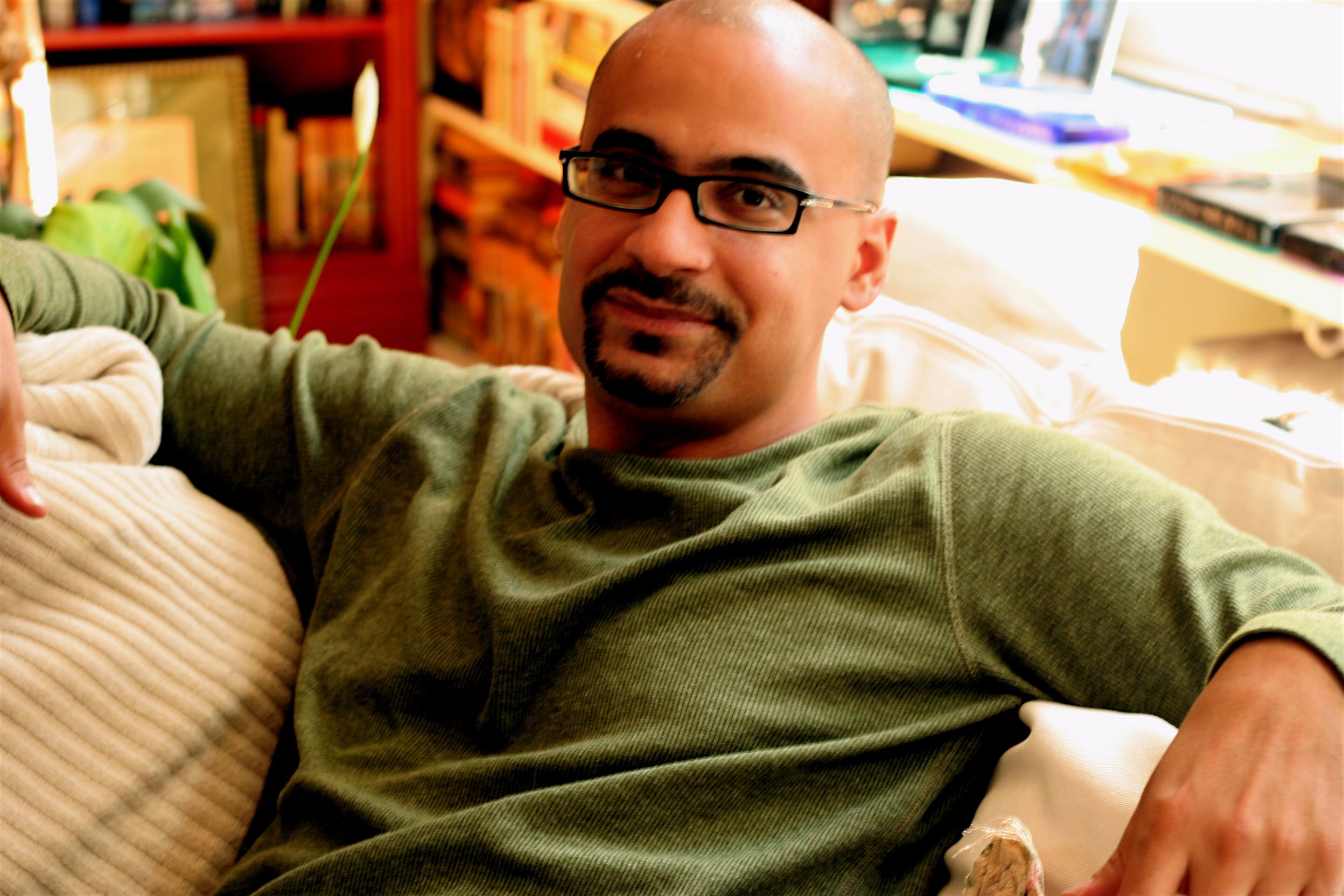
photo credit – ©Lily Oei
Junot Díaz was born in the Dominican Republic and raised in New Jersey. He is the author of the critically acclaimed Drown; The Brief Wondrous Life of Oscar Wao, which won the 2008 Pulitzer Prize and the National Book Critics Circle Award; and This Is How You Lose Her, a New York Times bestseller and National Book Award finalist. He is the recipient of a MacArthur “Genius” Fellowship, PEN/Malamud Award, Dayton Literary Peace Prize, Guggenheim Fellowship, and PEN/O. Henry Award. A graduate of Rutgers College, Díaz is currently the fiction editor at Boston Review and the Rudge and Nancy Allen Professor of Writing at the Massachusetts Institute of Technology.
Read More »
 Patricia’s work is featured in the 2011 editions of both Best American Poetry and Best American Essays. Her contribution to the anthology Staten Island Noir, which she also edited, won a Robert L. Fish Award from the Mystery Writers of America and is upcoming in Best American Mystery Stories 2013. Other honors include the National Poetry Series, two Pushcart Prizes and coveted MacDowell and Yaddo fellowships. In 2012, she was featured on the cover of the 100th anniversary issue of Poetry. Her groundbreaking book Blood Dazzler — which chronicles the human, emotional and physical toll exacted by Hurricane Katrina — was a finalist for the 2008 National Book Award, and one of NPR’s Top Books of 2008. The book was the basis for a thrilling dance/theater collaboration, which sold out its performances at NYC’s Harlem Stage. Other books include Teahouse of the Almighty, Close to Death, Big Towns, Big Talk, and Life According to Motown, just released in a 20th anniversary edition. She also penned the history book Africans in America and the award-winning children’s book Janna and the Kings. She has won four National Poetry Slam individual champions.
Patricia’s work is featured in the 2011 editions of both Best American Poetry and Best American Essays. Her contribution to the anthology Staten Island Noir, which she also edited, won a Robert L. Fish Award from the Mystery Writers of America and is upcoming in Best American Mystery Stories 2013. Other honors include the National Poetry Series, two Pushcart Prizes and coveted MacDowell and Yaddo fellowships. In 2012, she was featured on the cover of the 100th anniversary issue of Poetry. Her groundbreaking book Blood Dazzler — which chronicles the human, emotional and physical toll exacted by Hurricane Katrina — was a finalist for the 2008 National Book Award, and one of NPR’s Top Books of 2008. The book was the basis for a thrilling dance/theater collaboration, which sold out its performances at NYC’s Harlem Stage. Other books include Teahouse of the Almighty, Close to Death, Big Towns, Big Talk, and Life According to Motown, just released in a 20th anniversary edition. She also penned the history book Africans in America and the award-winning children’s book Janna and the Kings. She has won four National Poetry Slam individual champions.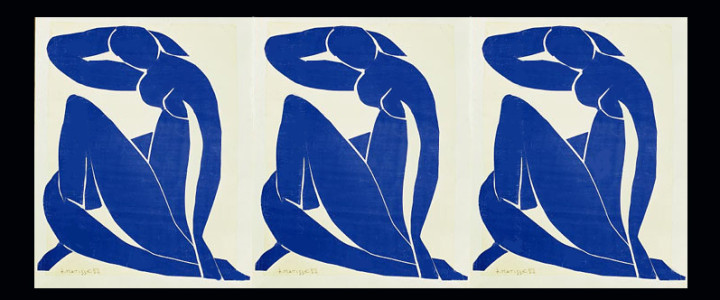

 Valentina Cano is a student of classical singing who spends whatever free time either writing or reading. Her works have appeared in Exercise Bowler, Blinking Cursor, Theory Train, Cartier Street Press, Berg Gasse 19, Precious Metals, A Handful of Dust, The Scarlet Sound, The Adroit Journal, Perceptions Literary Magazine, Welcome to Wherever, The Corner Club Press, Death Rattle, Danse Macabre, Subliminal Interiors, Generations Literary Journal, A Narrow Fellow, Super Poetry Highway, Stream Press, Stone Telling, Popshot, Golden Sparrow Literary Review, Rem Magazine, Structo, The 22 Magazine, The Black Fox Literary Magazine, Niteblade, Tuck Magazine, Ontologica, Congruent Spaces Magazine, Pipe Dream, Decades Review, Anatomy, Lowestof Chronicle, Muddy River Poetry Review, Lady Ink Magazine, Spark Anthology, Awaken Consciousness Magazine, Vine Leaves Literary Magazine, Avalon Literary Review, Caduceus,White Masquerade Anthology and Perhaps I’m Wrong About the World. Her poetry has been nominated for Best of the Web and the Pushcart Prize. Her debut novel, The Rose Master, will be published in 2014. You can find her here: http://carabosseslibrary.blogspot.com
Valentina Cano is a student of classical singing who spends whatever free time either writing or reading. Her works have appeared in Exercise Bowler, Blinking Cursor, Theory Train, Cartier Street Press, Berg Gasse 19, Precious Metals, A Handful of Dust, The Scarlet Sound, The Adroit Journal, Perceptions Literary Magazine, Welcome to Wherever, The Corner Club Press, Death Rattle, Danse Macabre, Subliminal Interiors, Generations Literary Journal, A Narrow Fellow, Super Poetry Highway, Stream Press, Stone Telling, Popshot, Golden Sparrow Literary Review, Rem Magazine, Structo, The 22 Magazine, The Black Fox Literary Magazine, Niteblade, Tuck Magazine, Ontologica, Congruent Spaces Magazine, Pipe Dream, Decades Review, Anatomy, Lowestof Chronicle, Muddy River Poetry Review, Lady Ink Magazine, Spark Anthology, Awaken Consciousness Magazine, Vine Leaves Literary Magazine, Avalon Literary Review, Caduceus,White Masquerade Anthology and Perhaps I’m Wrong About the World. Her poetry has been nominated for Best of the Web and the Pushcart Prize. Her debut novel, The Rose Master, will be published in 2014. You can find her here: http://carabosseslibrary.blogspot.com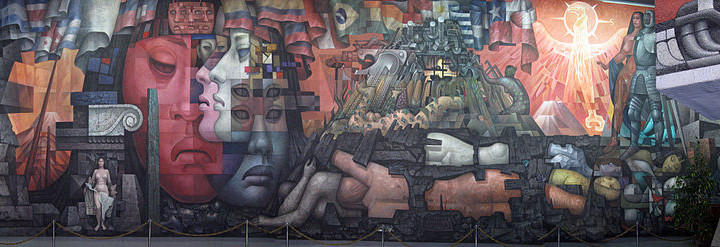
 DENICE FROHMAN is an award-winning poet, lyricist, and educator, whose work explores the intersections of race gender, sexuality, and the “in-betweeness” that exists in us all. She is the 2013 Women of the World Poetry Slam Champion, 2013 Hispanic Choice Award and 2012 Leeway Transformation Award recipient. Her work has been fatured in the Huffington Post, Upworthy, Buzzfeed, The Apiary and more. Her poem “Dear Straight People” went viral and has over 700,000 views on Youtube. She has performed and taught poetry across the country and internationally, and is the Program Director at The Philly Youth Poetry Movement. She is currently touring as one half of the spoken word duo, Sister Outsider. Her debut CD, Feels Like Home, is available now. www.denicefrohman.com
DENICE FROHMAN is an award-winning poet, lyricist, and educator, whose work explores the intersections of race gender, sexuality, and the “in-betweeness” that exists in us all. She is the 2013 Women of the World Poetry Slam Champion, 2013 Hispanic Choice Award and 2012 Leeway Transformation Award recipient. Her work has been fatured in the Huffington Post, Upworthy, Buzzfeed, The Apiary and more. Her poem “Dear Straight People” went viral and has over 700,000 views on Youtube. She has performed and taught poetry across the country and internationally, and is the Program Director at The Philly Youth Poetry Movement. She is currently touring as one half of the spoken word duo, Sister Outsider. Her debut CD, Feels Like Home, is available now. www.denicefrohman.com
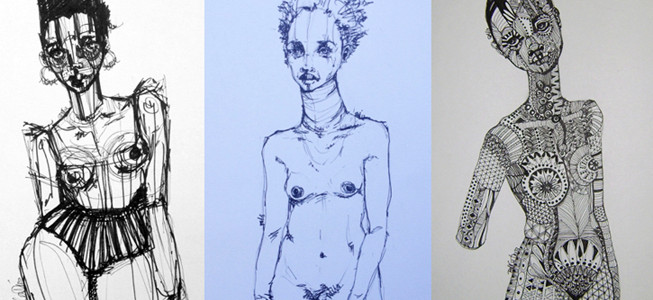







































 Brianna McCarthy is a mixed media artist who lives and works in Trinidad and Tobago. Her work takes on the intricacies and dynamics of representing Afro-Caribbean women who are portrayed as being strong, long-suffering, exoticised and picturesque beings against a backdrop of poverty, hardship, abuse and/or scorn. McCarthy’s constructions and representations revolt against and subvert the stereotypical trends of representing the black body.
Brianna McCarthy is a mixed media artist who lives and works in Trinidad and Tobago. Her work takes on the intricacies and dynamics of representing Afro-Caribbean women who are portrayed as being strong, long-suffering, exoticised and picturesque beings against a backdrop of poverty, hardship, abuse and/or scorn. McCarthy’s constructions and representations revolt against and subvert the stereotypical trends of representing the black body.
 Mecca Jamilah Sullivan’s fiction has appeared or is forthcoming in Best New Writing, Crab Orchard Review, American Fiction: Best New Stories by Emerging Writers, Callaloo, BLOOM,TriQuarterly, Lumina, Philadelphia Stories, All About Skin: Short Stories by Award-Winning Women Writers, Baobab: South African Journal of New Writing and many others. Her honors include the Charles Johnson Fiction Award, the James Baldwin Memorial Playwriting Award, and scholarships and fellowships from the National Endowment for the Arts, the Bread Loaf Writers’ Conference, the Yaddo colony, the Hedgebrook writers’ retreat, and the Center for Fiction in New York City, where she was awarded the 2011 Emerging Writer fellowship. She holds a Ph.D. in English Literature from the University of Pennsylvania. Her short story collection, Blue Talk and Love, is forthcoming. Twitter: @mecca_jamilah Facebook: Mecca Jamilah Sullivan
Mecca Jamilah Sullivan’s fiction has appeared or is forthcoming in Best New Writing, Crab Orchard Review, American Fiction: Best New Stories by Emerging Writers, Callaloo, BLOOM,TriQuarterly, Lumina, Philadelphia Stories, All About Skin: Short Stories by Award-Winning Women Writers, Baobab: South African Journal of New Writing and many others. Her honors include the Charles Johnson Fiction Award, the James Baldwin Memorial Playwriting Award, and scholarships and fellowships from the National Endowment for the Arts, the Bread Loaf Writers’ Conference, the Yaddo colony, the Hedgebrook writers’ retreat, and the Center for Fiction in New York City, where she was awarded the 2011 Emerging Writer fellowship. She holds a Ph.D. in English Literature from the University of Pennsylvania. Her short story collection, Blue Talk and Love, is forthcoming. Twitter: @mecca_jamilah Facebook: Mecca Jamilah Sullivan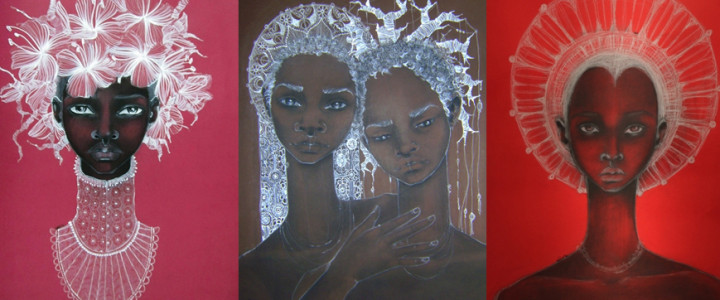
 Danez Smith is a Cave Canem Fellow, Pushcart Nominee, Survivor & Black Queer from St. Paul, MN. Danez is the winner of the 2014 Reading Series Contest sponsored by The Paris-American, was featured in The Academy of American Poets’ Emerging Poets Series by Patricia Smith & was a finalist for the 2013 Rattle Poetry Prize. Danez is the author of ‘hands on ya knees’, a chapbook published by Penmanship Books. His full-length collection, ‘[insert] Boy, will be published in 2014 by Yes Yes Books. His writing has appeared or is forthcoming in Poetry Magazine, Ploughshares, Devil’s Lake, The Cortland Review, Anti-, & elsewhere. Danez started writing because of slams & necessity, & placed 6th in the world at the 2011 Individual World Poetry Slam & is the 2013 Rustbelt Midwest Regional Slam Champion. Danez twerks with the best, has no time for the rest. He writes & lives in Oakland, CA.
Danez Smith is a Cave Canem Fellow, Pushcart Nominee, Survivor & Black Queer from St. Paul, MN. Danez is the winner of the 2014 Reading Series Contest sponsored by The Paris-American, was featured in The Academy of American Poets’ Emerging Poets Series by Patricia Smith & was a finalist for the 2013 Rattle Poetry Prize. Danez is the author of ‘hands on ya knees’, a chapbook published by Penmanship Books. His full-length collection, ‘[insert] Boy, will be published in 2014 by Yes Yes Books. His writing has appeared or is forthcoming in Poetry Magazine, Ploughshares, Devil’s Lake, The Cortland Review, Anti-, & elsewhere. Danez started writing because of slams & necessity, & placed 6th in the world at the 2011 Individual World Poetry Slam & is the 2013 Rustbelt Midwest Regional Slam Champion. Danez twerks with the best, has no time for the rest. He writes & lives in Oakland, CA.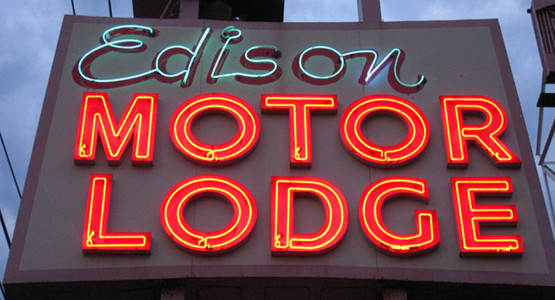


 Boona Daroom is 30. His poetry has appeared in SOFTBLOW, LIT, NoDear and other places. He lives in Brooklyn.
Boona Daroom is 30. His poetry has appeared in SOFTBLOW, LIT, NoDear and other places. He lives in Brooklyn.
 Rachel Eliza Griffiths is a poet and visual artist. Her forthcoming collection, Lighting the Shadow, will be published by Four Way Books in 2015. Currently, Griffiths teaches creative writing at Sarah Lawrence College and lives in Brooklyn. Please visit: www.rachelelizagriffiths.com.
Rachel Eliza Griffiths is a poet and visual artist. Her forthcoming collection, Lighting the Shadow, will be published by Four Way Books in 2015. Currently, Griffiths teaches creative writing at Sarah Lawrence College and lives in Brooklyn. Please visit: www.rachelelizagriffiths.com.